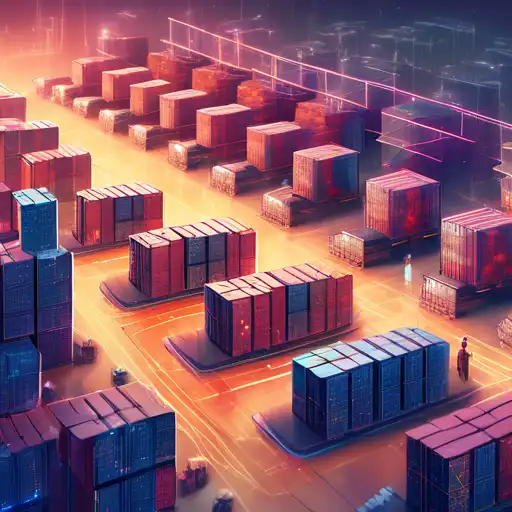The Transformative Power of Blockchain in Modern Supply Chains
In the digital age, blockchain technology is emerging as a revolutionary force in transforming supply chains across industries. By offering unparalleled transparency, security, and efficiency, blockchain is setting new standards for how goods are tracked and transactions are recorded. This article delves into the myriad ways blockchain is reshaping supply chains, offering insights into its benefits and real-world applications.
Understanding Blockchain in Supply Chains
At its core, blockchain is a distributed ledger technology that allows data to be stored globally on thousands of servers. This ensures that no single entity can control the data, making it highly secure and tamper-proof. In supply chains, this technology is being leveraged to create immutable records of transactions, from the origin of raw materials to the final delivery of products to consumers.
Key Benefits of Blockchain for Supply Chains
- Enhanced Transparency: Every transaction or movement of goods is recorded on the blockchain, providing all stakeholders with a clear and unalterable history.
- Improved Security: The decentralized nature of blockchain makes it nearly impossible for hackers to alter or delete transaction records.
- Increased Efficiency: By automating and streamlining processes, blockchain reduces the need for intermediaries, cutting down on time and costs.
- Better Traceability: Companies can trace the origin and journey of products in real-time, ensuring authenticity and compliance with regulations.
Real-World Applications
Several industries are already reaping the benefits of blockchain in their supply chains. For instance, the food industry uses blockchain to track the journey of products from farm to table, significantly reducing the risk of contamination and fraud. Similarly, the pharmaceutical sector employs blockchain to combat counterfeit drugs by verifying the authenticity of medications throughout the supply chain.
Challenges and Considerations
Despite its potential, the adoption of blockchain in supply chains is not without challenges. Issues such as scalability, interoperability, and the need for standardization across industries must be addressed to fully realize its benefits. Moreover, businesses must invest in training and infrastructure to integrate blockchain technology effectively.
Looking Ahead
As blockchain technology continues to evolve, its impact on supply chains is expected to grow exponentially. With ongoing advancements and increasing adoption, blockchain is poised to become the backbone of supply chain management, offering a more transparent, secure, and efficient way to conduct business in the digital era.
For more insights into how technology is transforming industries, check out our articles on Digital Transformation in Manufacturing and The Future of Logistics.
